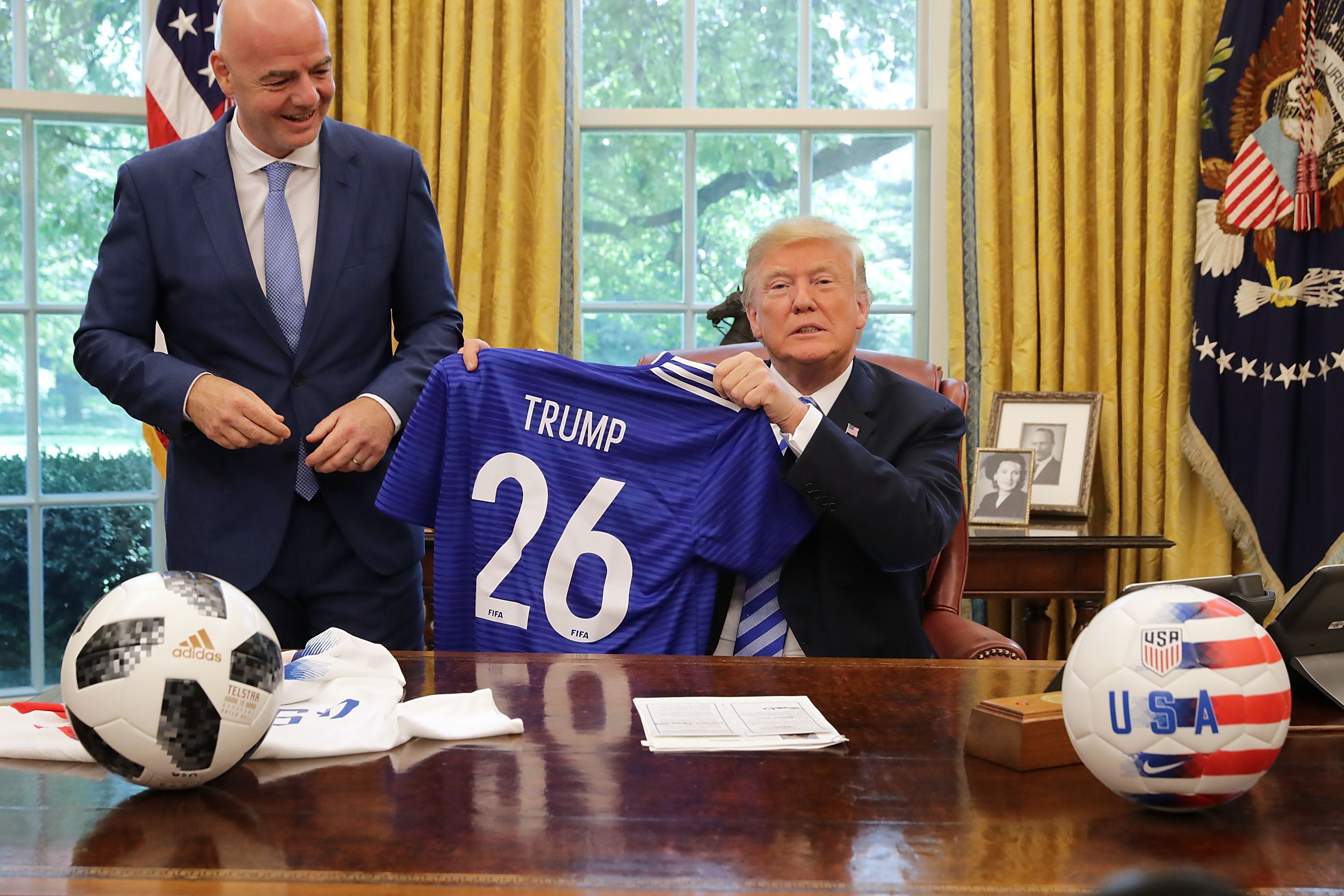Fears that Trump reforms could keep World Cup 2026 fans out of the US
Trump promised to allow all eligible athletes, fans and officials without discrimination into the U.S. for the 2026 World Cup but harsh immigration policies could threaten that
Long visa appointment wait times combined with harsher regulations implemented by President Donald Trump could make it more difficult for soccer fans to make it to the United States next year for the World Cup.
There may be slightly less than 500 days until the U.S. hosts the 2026 World Cup, in tandem with Canada and Mexico, but that’s not enough time for soccer fans from Brazil, Colombia and Turkey to obtain tourism visas, according to global visa wait times.
Appointments for B-1 and B-2 visas – tourism visas that are required for fans attending the games – can take anywhere from 600 to 700 days for those countries. People from India, the United Arab Emirates, Peru and Honduras could face a wait of more than 400 days.
The long wait times are caused, in part, by a massive backlog in the U.S. immigration system.

Those times could potentially take even longer after Trump signed an executive order directing federal agencies to be more thorough with the visa-issuance process and identify countries in which the visa-issuance process should be more thorough.
Particularly, the executive order declares the U.S. should not admit foreigners associated with “designated foreign terrorists” – he recently gave the designation to Mexican drug cartels.
That executive order could lead Trump to issue a travel ban for certain countries, similar to the one he initiated during his first administration.
In turn, soccer fans across the world could be blocked from visiting the U.S. for the World Cup – something Trump promised against when he made a bid for the U.S. to host the soccer tournament in 2018.
In a letter to FIFA at the time, Trump said “All eligible athletes, officials, and fans from all countries around the world would be able to enter the United States without discrimination".
He said he was “confident” the U.S. would host the World Cup in a “similarly open and festive manner” like when it hosted the 1996 Summer Olympics and 1994 World Cup.

Athletes and teams are unlikely to face the same problems that tourists seeking visas are because they apply for P-1 visas which have significantly less wait time and are made for those performing in the U.S.
Additionally, people from countries that partner with the U.S. on the Visa Waiver Program won’t face significant wait times as they do not need to obtain a tourism visa to enter the U.S. for 90 days.
But the massive backlog in visa appointment wait times is “going to be a massive problem” for tourism during the World Cup, David J. Bier, an associate director for immigration studies at the Cato Institute, told The Los Angeles Times.
It could particularly be an issue for Central and South American soccer fans who wanted to travel to the U.S. for the World Cup. Trump has repeatedly targeted these countries. On Sunday, he suspended visa processes at the U.S. Embassy in Bogotá, Colombia after getting into a dispute with the president.
“Promoting legal visitation is critically important to the United States,” Geoff Freeman, the president and CEO of the U.S. Travel Association said to The Independent.
“President Trump has a golden opportunity to showcase American greatness to the world as the U.S. plays host to the World Cup and other major events if we commit to reducing long visa waits and appropriately staffing U.S. Customs entry points. Leveraging these events is a huge opportunity to build back America’s lost share of long-haul travelers, which has declined 41% since 2000,” Freeman added.
A spokesperson for the State Department, the federal agency responsible for the U.S.’s foreign policy, said it’s committed to protecting the U.S. by upholding high standards of national security and public safety through the visa process.
Join our commenting forum
Join thought-provoking conversations, follow other Independent readers and see their replies
Comments
Bookmark popover
Removed from bookmarks